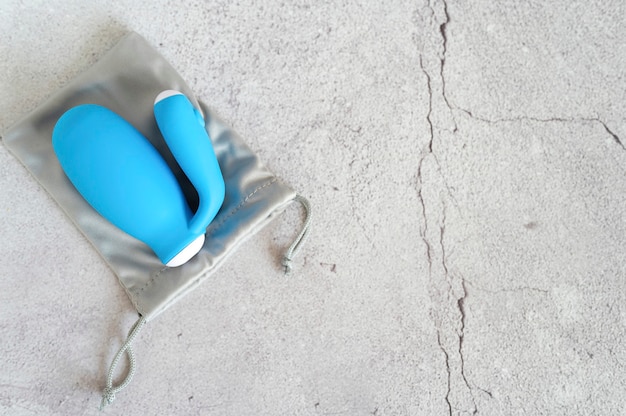Couples therapy can be a transformative experience for partners seeking to strengthen their relationship and overcome challenges. This comprehensive guide explores the ins and outs of couples therapy, offering valuable insights and practical advice for those considering or currently undergoing this process.
The Foundations of Couples Therapy
Couples therapy serves as a powerful tool for partners to address and resolve conflicts, improve communication, and deepen their emotional connection. At its core, relationship counselling aims to help couples understand each other better and develop strategies to navigate difficulties together.
Common relationship challenges that often lead couples to seek therapy include communication breakdowns, trust issues, and differing expectations. A skilled couples therapist acts as a neutral facilitator, guiding partners through difficult conversations and helping them develop new ways of relating to one another.
For instance, a business owner might find that outsourcing administrative tasks allows them to focus more on their relationship, reducing work-related stress and creating space for meaningful interactions with their partner.
Preparing for Couples Therapy
Before embarking on couples therapy, it’s crucial for each partner to identify their personal goals and expectations for the process. This self-reflection can help clarify what you hope to achieve and provide a starting point for discussions with your therapist.
Discussing the decision to seek therapy with your partner is an important step. Approach this conversation with openness and empathy, emphasising your commitment to improving the relationship rather than assigning blame.
Choosing the right therapist is paramount to the success of couples therapy. Look for a professional with experience in relationship counselling and a therapeutic approach that aligns with your needs and values.
Many couples find that outsourcing household management tasks, such as scheduling appointments or managing finances, can reduce day-to-day stress and create more time for focused preparation before therapy sessions.
The Initial Session: Setting the Stage
Your first appointment with a couples therapist typically involves gathering information about your relationship history, current challenges, and goals for therapy. The therapist will explain their approach and answer any questions you may have about the process.
Establishing ground rules and boundaries is essential for creating a safe and productive therapeutic environment. These might include guidelines for respectful communication, confidentiality, and commitment to the therapy process.
Creating a trusting environment is crucial for the success of couples therapy. Your therapist will work to ensure that both partners feel heard, respected, and supported throughout the process.
Couples who outsource childcare or household chores often find they can arrive at therapy sessions more relaxed and focused, having freed up mental energy to engage fully in the therapeutic process.
Key Techniques in Couples Therapy
Active listening and effective communication are fundamental skills taught in couples therapy. These techniques help partners truly hear and understand each other’s perspectives, fostering empathy and connection.
Emotional regulation and conflict resolution strategies are also key components of couples therapy. Learning to manage strong emotions and approach disagreements constructively can significantly improve relationship dynamics.
Rebuilding intimacy and connection is often a focus of couples therapy, particularly for long-term partners who may have drifted apart over time. Therapists may suggest exercises and activities to help rekindle emotional and physical closeness.
Many couples find that outsourcing tasks like meal planning and preparation allows them more quality time together, providing opportunities to practice newly learned communication and intimacy-building techniques.
Addressing Common Issues in Couples Therapy
Infidelity and trust rebuilding are complex issues that often bring couples to therapy. A skilled therapist can guide partners through the process of healing, forgiveness, and re-establishing trust.
Financial disagreements and planning are another common source of relationship conflict. Couples therapy can help partners develop shared financial goals and strategies for managing money together.
Parenting conflicts and family dynamics frequently arise in couples therapy, particularly for those with children. Therapists can help partners align their parenting approaches and navigate challenges as a united front.
Outsourcing financial management or bookkeeping services can alleviate stress related to money matters, allowing couples to focus on rebuilding trust and improving their relationship rather than getting bogged down in financial details.
Overcoming Barriers to Progress
Dealing with resistance to change is a common challenge in couples therapy. Therapists employ various techniques to help partners overcome fear or reluctance and embrace new ways of relating.
Managing unrealistic expectations is another important aspect of couples therapy. Therapists help partners develop realistic goals and timelines for improvement, recognising that change takes time and effort.
Navigating cultural and religious differences can be particularly challenging for some couples. A culturally competent therapist can help partners bridge these gaps and find common ground while respecting individual beliefs and traditions.
Some couples find that outsourcing cultural or language translation services can facilitate better understanding and communication, particularly in cross-cultural relationships.
Implementing Therapy Techniques at Home
Daily appreciation exercises are a simple yet effective way to cultivate positivity in a relationship. Partners are encouraged to regularly express gratitude for each other’s efforts and qualities.
Scheduled quality time and date nights are essential for maintaining connection amidst busy lives. Couples are often advised to prioritise regular one-on-one time to nurture their bond.
Practising new communication skills learned in therapy is crucial for long-term relationship improvement. Partners are encouraged to apply these techniques in their daily interactions outside of therapy sessions.
Outsourcing household management or personal assistant services can free up valuable time for couples to focus on implementing therapy techniques and nurturing their relationship.
Measuring Progress and Success
Setting achievable milestones helps couples track their progress in therapy. These might include specific behaviour changes, improved communication patterns, or increased relationship satisfaction.
Recognising improvements in daily interactions is an important part of the therapeutic process. Partners are encouraged to acknowledge and celebrate small positive changes as they occur.
Reassessing goals and adjusting strategies is an ongoing process in couples therapy. As the relationship evolves, therapists work with couples to refine their objectives and approaches.
Many couples find that outsourcing progress tracking or goal-setting assistance can help them stay accountable and motivated throughout the therapy process.
When to Consider Additional Support
Individual therapy alongside couples counselling can be beneficial for addressing personal issues that impact the relationship. Some therapists recommend this approach to complement the couples work.
Group therapy options for couples provide an opportunity to learn from and connect with other couples facing similar challenges. This can be a valuable supplement to one-on-one couples therapy.
Seeking specialised help for specific issues, such as addiction or mental health concerns, may be necessary to fully address relationship difficulties. Therapists can provide referrals to appropriate specialists as needed.
Outsourcing research and coordination of additional support services can help couples efficiently access the resources they need to supplement their therapy journey.
Life After Couples Therapy
Maintaining positive changes long-term is the ultimate goal of couples therapy. Partners are encouraged to continue practising the skills and strategies learned in therapy to sustain relationship improvements.
Recognising warning signs of relapse is important for preventing a return to old, unhelpful patterns. Couples learn to identify these signs and take proactive steps to address emerging issues.
Considering returning for a tune-up session can be beneficial for couples who have completed therapy but wish to reinforce their progress or address new challenges that arise.
Some couples find that outsourcing ongoing relationship support, such as regular check-ins with a relationship coach, can help them maintain the positive changes achieved through therapy and continue growing together.


